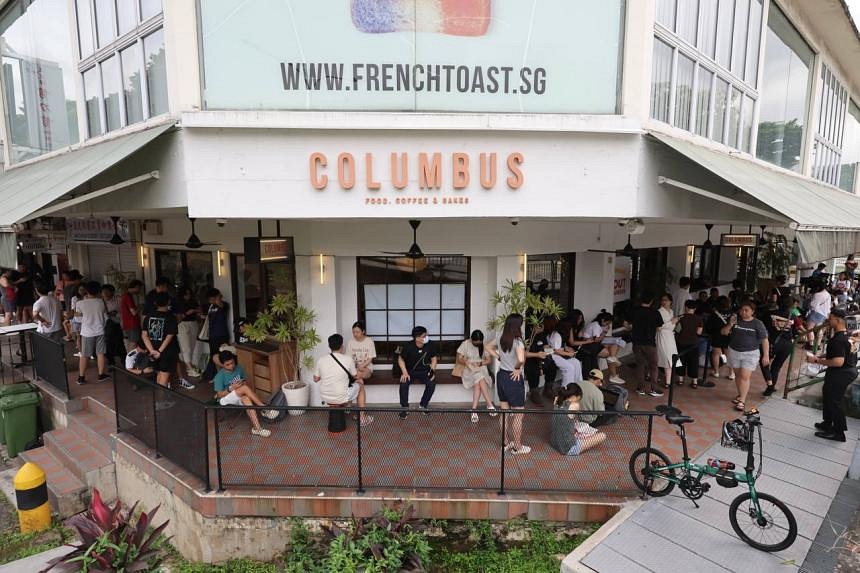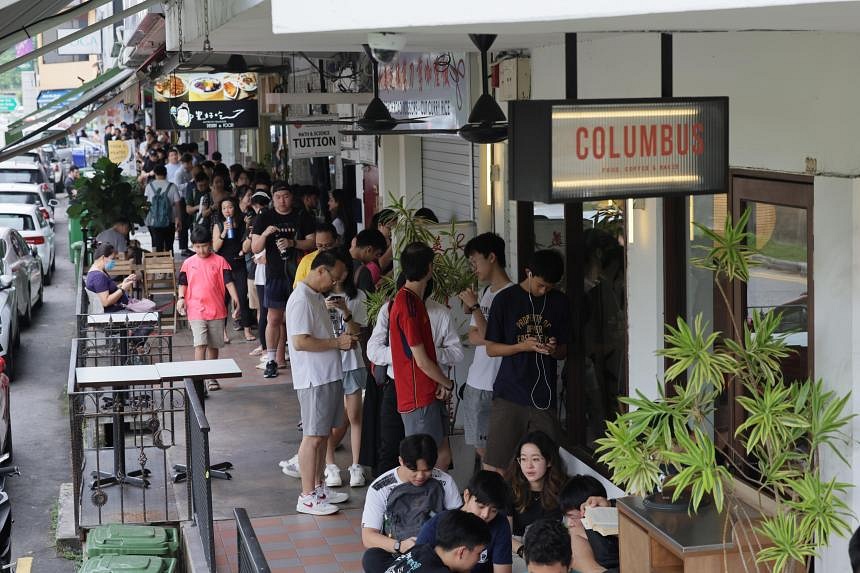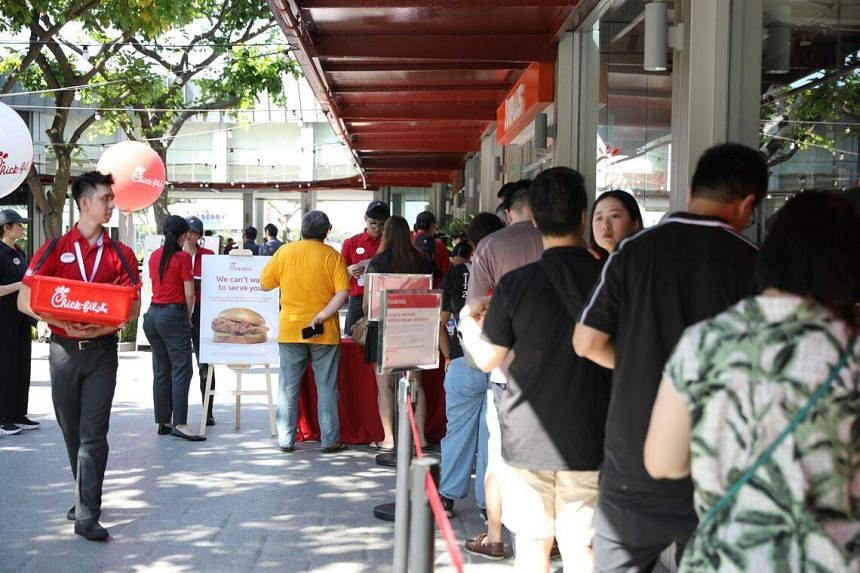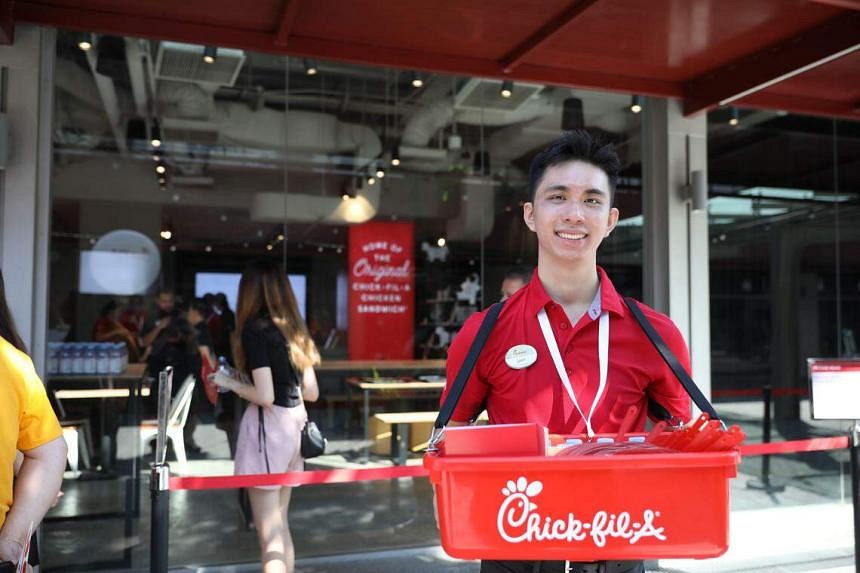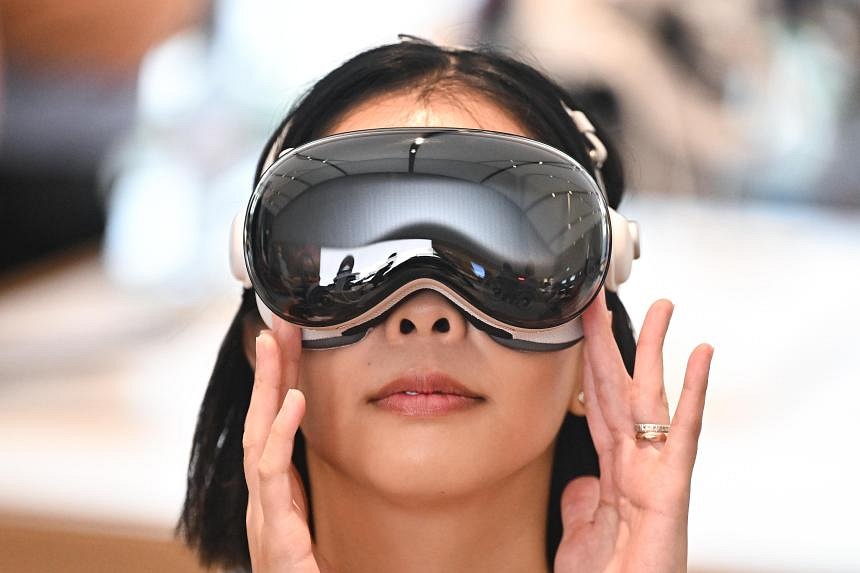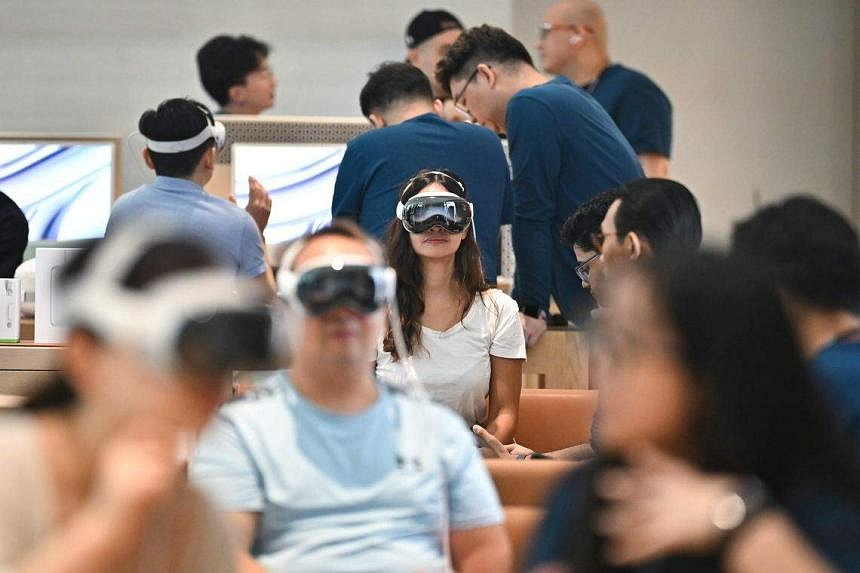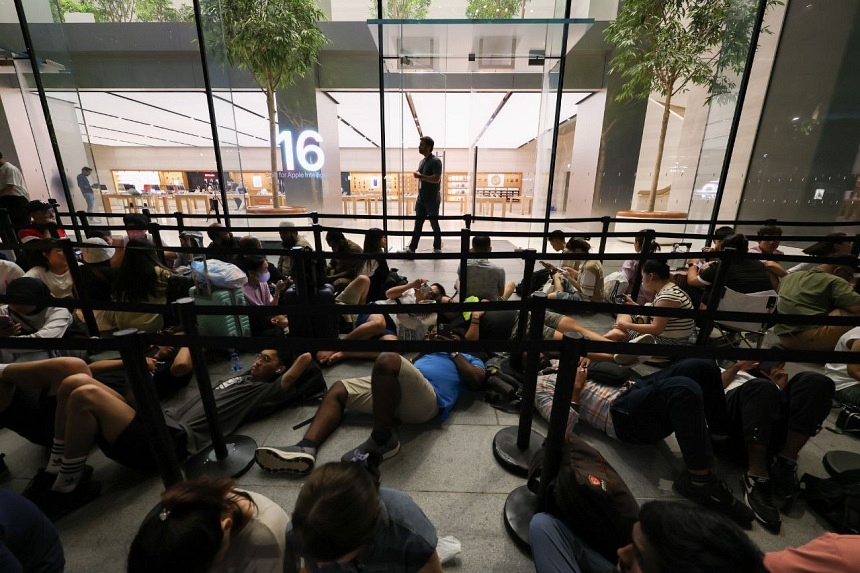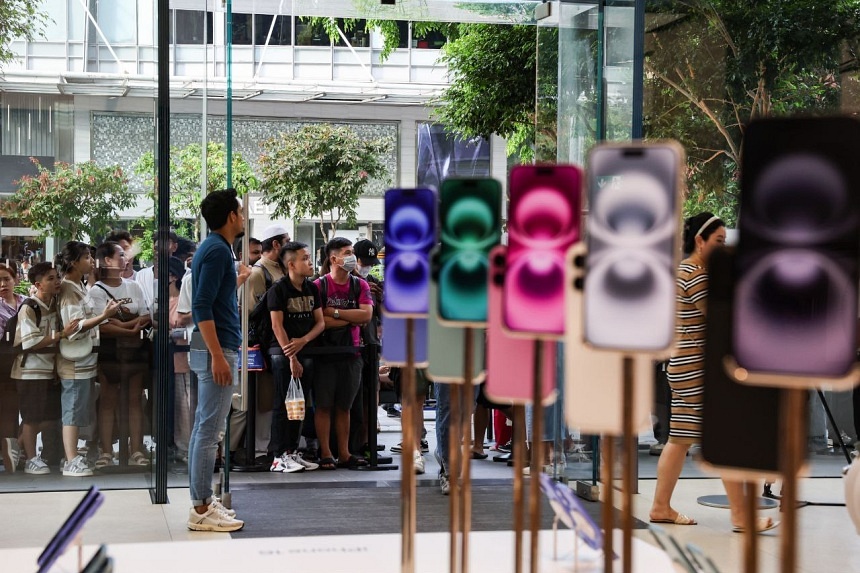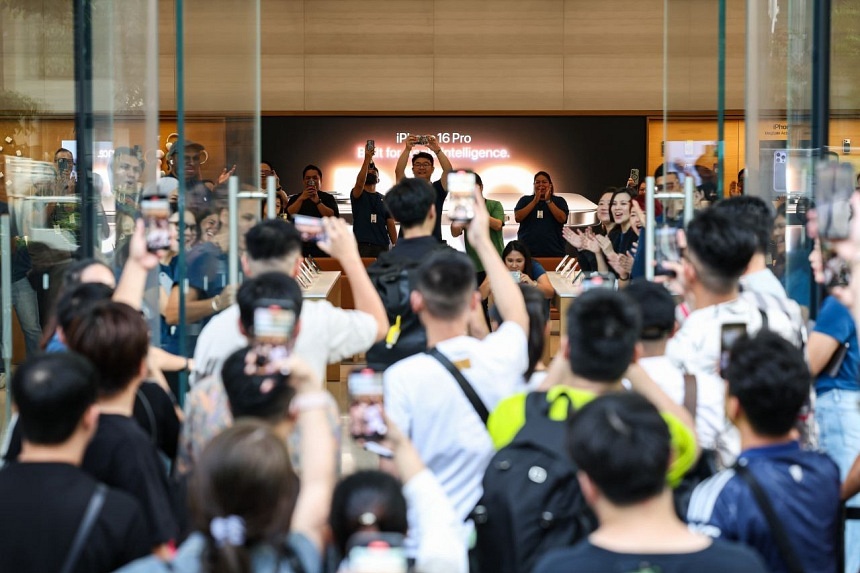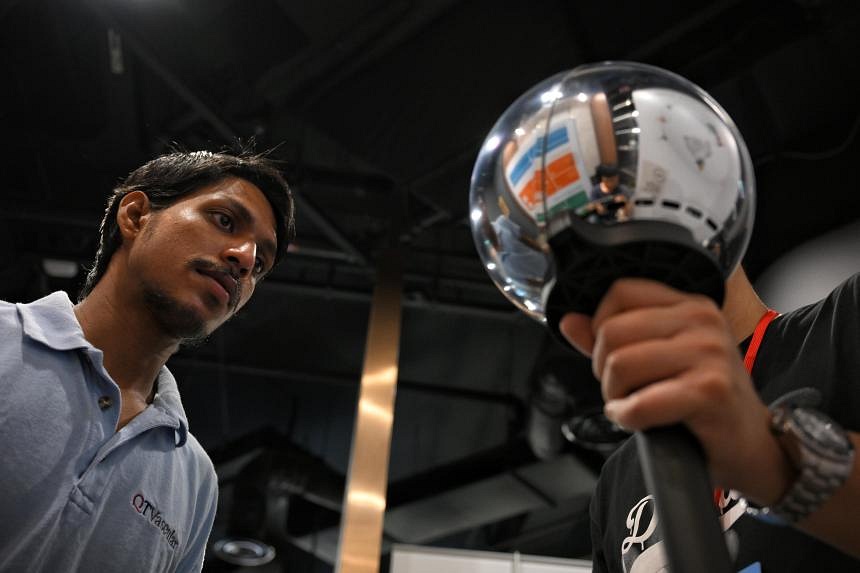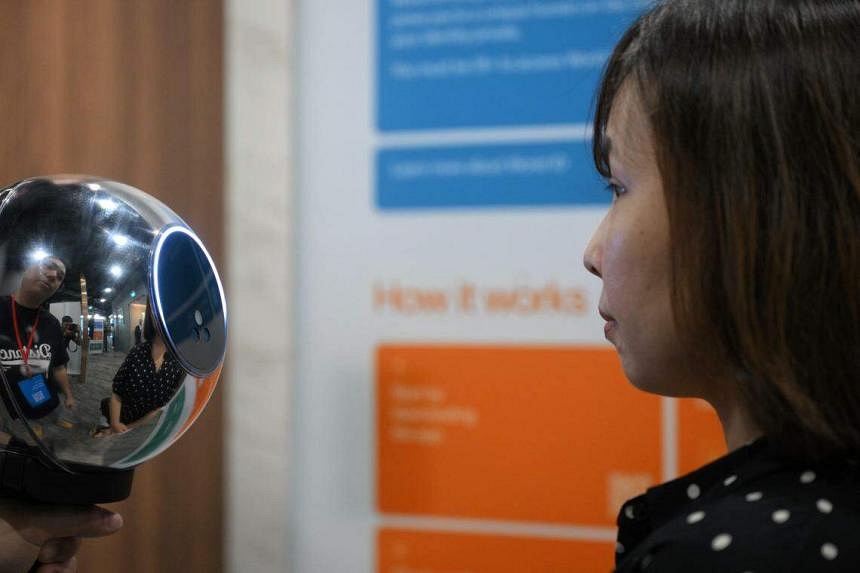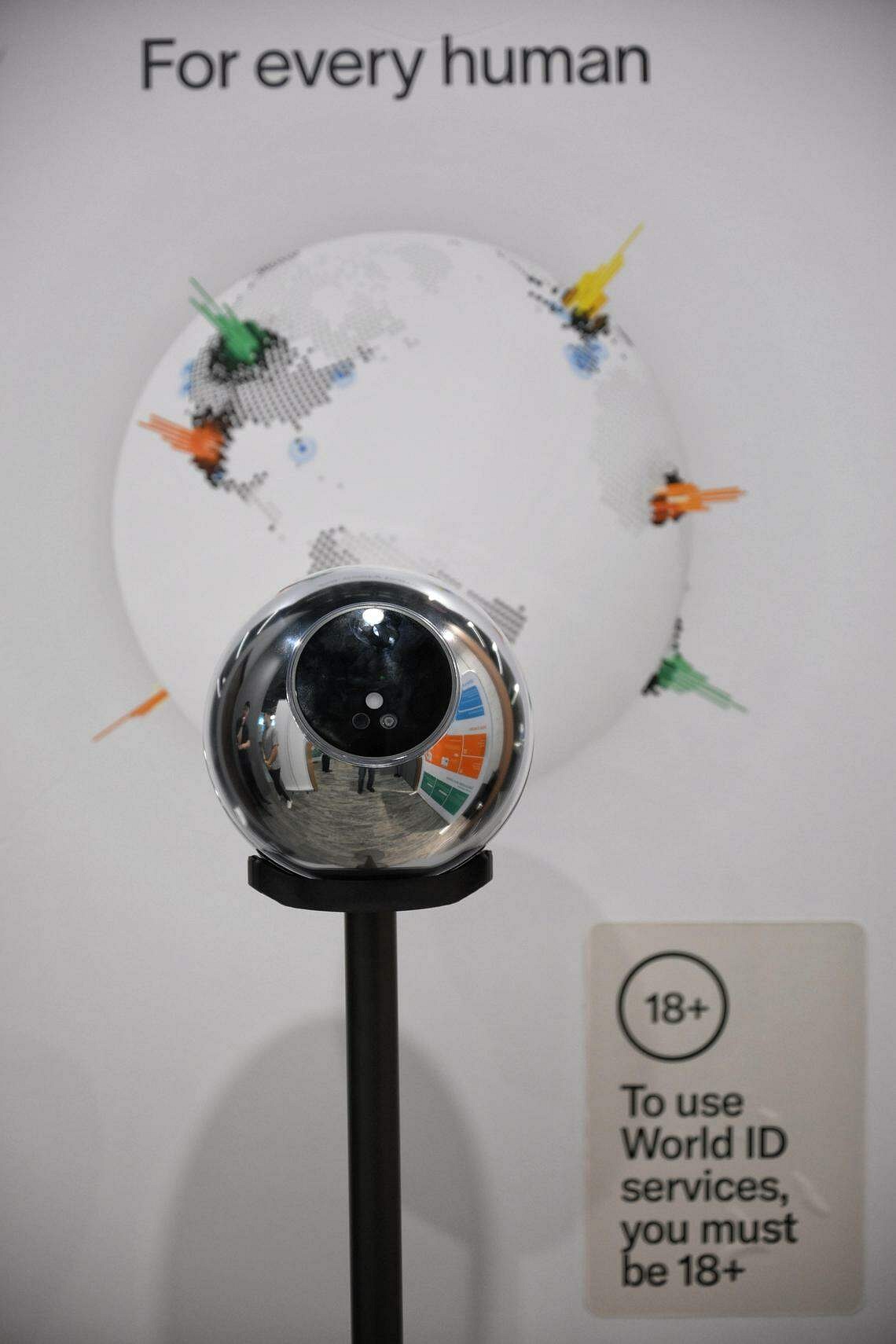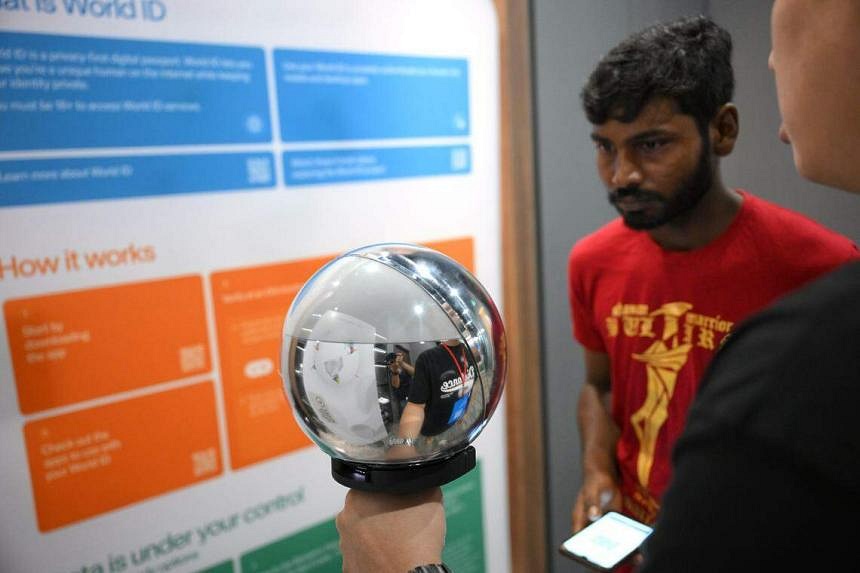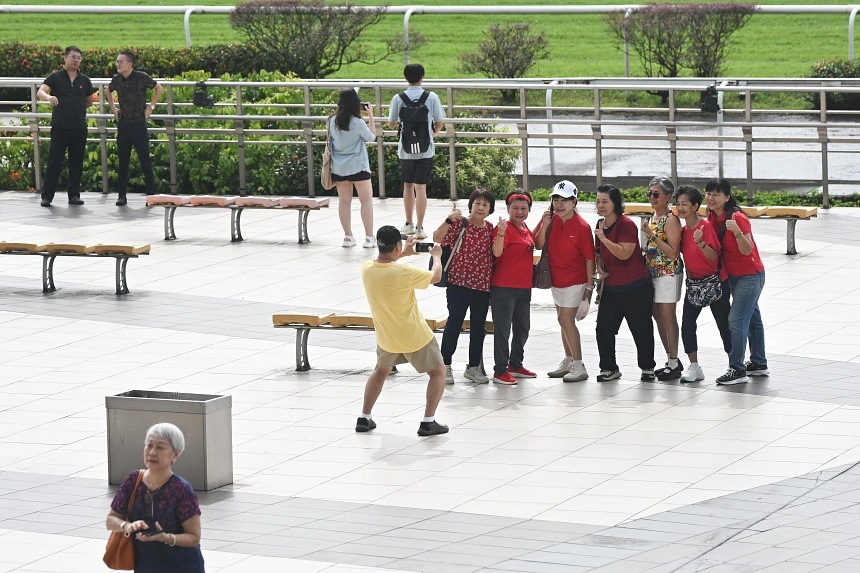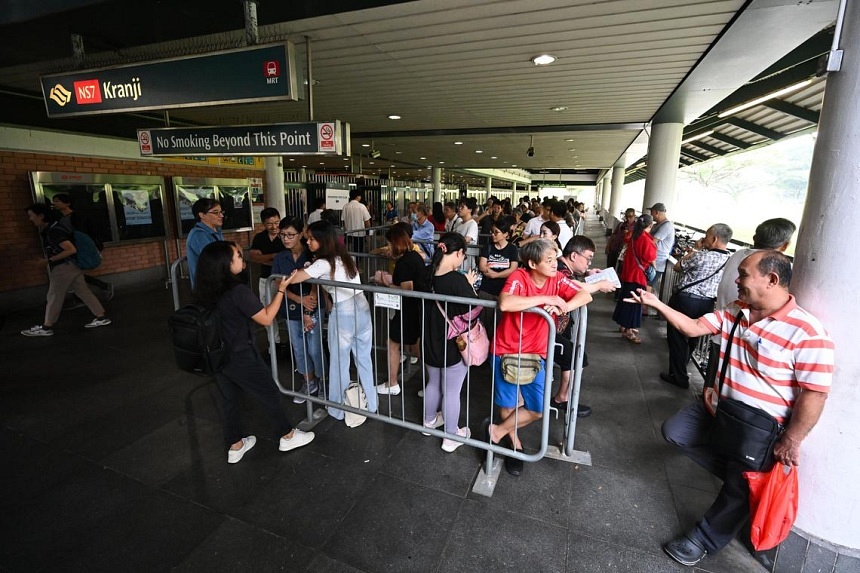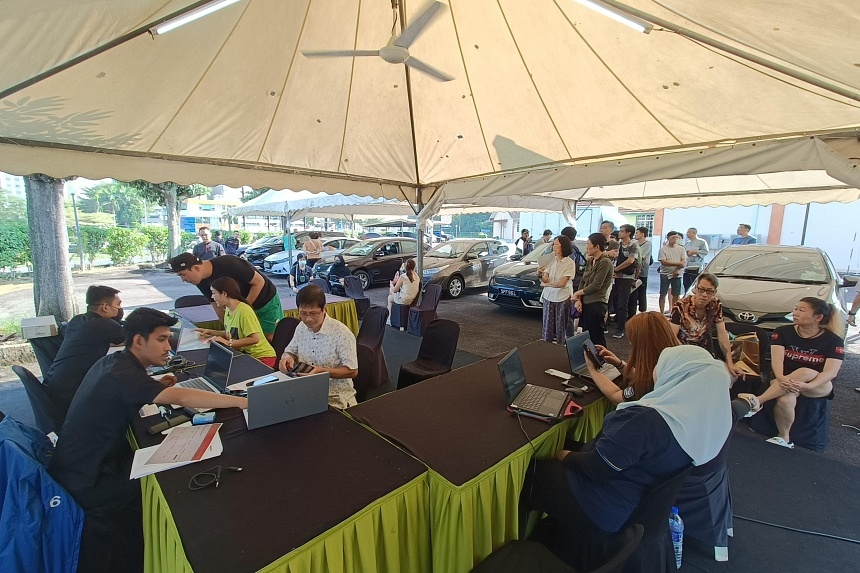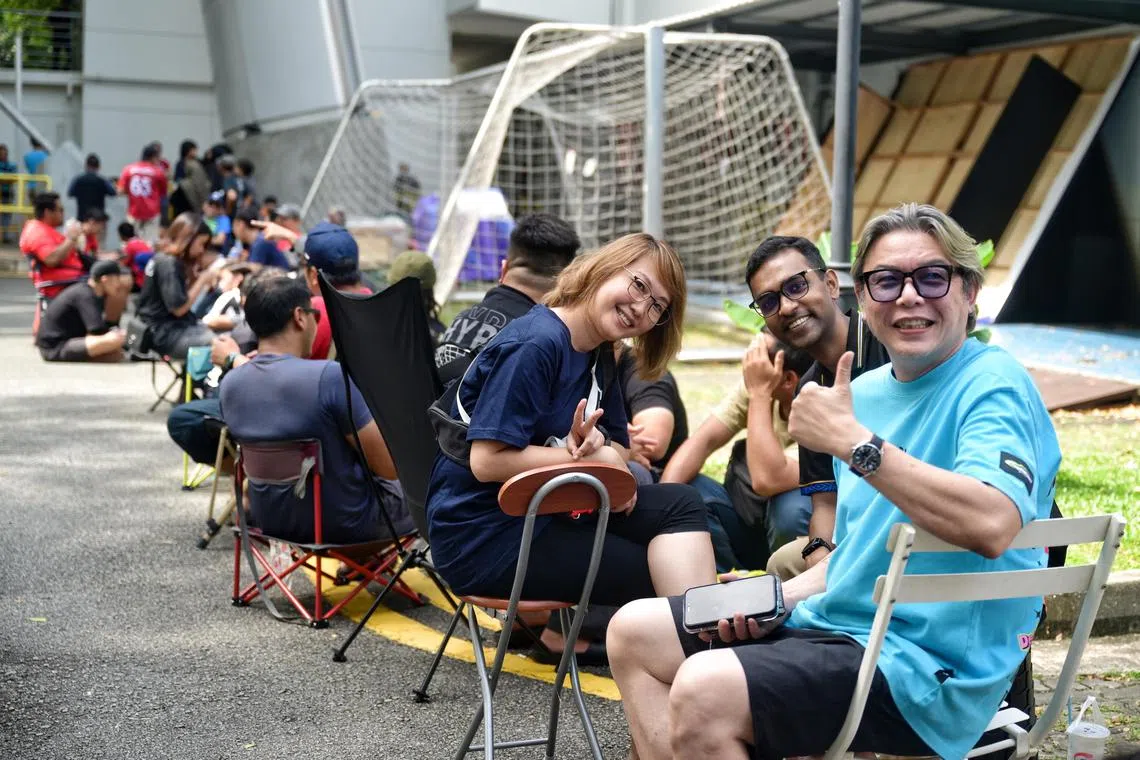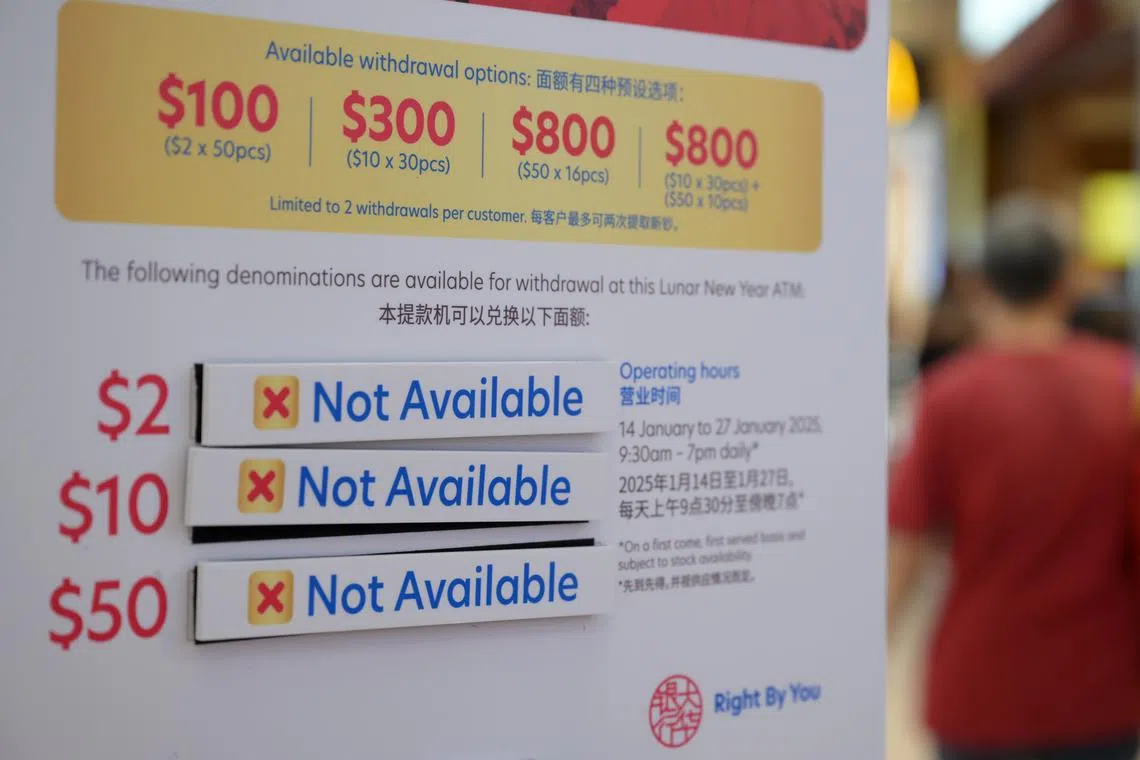Queues spotted in S’pore as people get their eyes scanned for cryptocurrency
Each person can verify his account only once. ST PHOTO: MARK CHEONG
David Sun and
Osmond Chia
Jul 28, 2024
SINGAPORE - Queues have been spotted at the basement of GR.iD shopping mall in Selegie Road, with those in line waiting to get their eyes scanned for cryptocurrency.
They wait to
stare into a silver orb to get Worldcoin cryptocurrency, as part of a project co-founded by
OpenAI chief executive Sam Altman.
Dubbed Worldcoin, the project aims to become the world’s largest privacy-preserving human identity and financial network.
It does that by verifying user accounts, called World IDs, using users’ biometric data captured at proprietary imaging devices called Worldcoin Orbs around the world, including in Singapore.
World IDs can, in turn, be used to verify accounts on other platforms such as Discord and Shopify, proving that users are humans and not bots.
Worldcoin has been operating in Singapore since December 2023 and its orbs can be found in at least 10 locations islandwide, including GR.iD shopping mall and OGBC Innovation Hub in Raffles Place. These orbs sit within the existing premises of business owners.
Migrant workers formed the bulk of those queueing on the six days that The Straits Times visited GR.iD mall in May and June. They were following the instructions of an agent, who helped each of them to create a Worldcoin account.
A migrant worker, who did not want to be identified, said each migrant worker is paid about $45 in cash on average, after handing over control of his Worldcoin account and tokens to the agent.
“No one is forced into this. Many of us do it because everyone wants money,” he said.
The agents do not appear to be directly affiliated to Worldcoin, and declined to comment when approached by ST.
Each person can verify his account only once, and the amount of cryptocurrency tokens paid to users for verification varies.
Indian and Bangladeshi migrant workers here told ST they were offered less than $100 worth of tokens. But this reporter created a Worldcoin account in May and was offered 67 tokens, roughly worth about US$150 (S$200).
Office clerk Ivy Liu, 43, set up an account and had her eyes and face scanned at a Worldcoin Orb at the OGBC Innovation Hub in early June.
Ms Liu, who read about Worldcoin through social media, hopes to use the tokens to pay for goods online and overseas, and recommended it to her family as well. “When we go overseas, we’re already getting our biometrics scanned and data collected at immigration by different governments,” she said.
Mr Noel Tan, 26, a Singapore-based operator, said he got interested in Worldcoin after attending a cryptocurrency event, Token2049, in September 2023. He currently operates Worldcoin Orbs at two locations, with plans for a third one.
According to Worldcoin’s website, its operators are compensated for each verification they help with. Operators were initially paid in the cryptocurrency USD Coin, but have since November 2023 been paid in Worldcoin tokens. It is unclear how Singapore-based operators are being compensated.
Office clerk Ivy Liu having her eyes and face scanned at a Worldcoin Orb at the OGBC Innovation Hub on June 10 in exchange for cryptocurrency. ST PHOTO: MARK CHEONG
Developed by San Francisco- and Berlin-based Tools for Humanity, Worldcoin was launched in July 2023 with the aim of distinguishing humans from bots and artificial intelligence.
The project, which received backing from private American venture capital firm Andreessen Horowitz, has close to six million verified accounts worldwide so far.
Tools for Humanity’s subsidiary here, Everyone in Singapore, was incorporated on June 12 with a capital of $1 and German citizen Dominique Leonard Simon as its director. Mr Simon is also the director of Blockchain.com (Singapore), a Monetary Authority of Singapore (MAS)-licensed digital token payment service provider.
Responding to ST’s queries, an MAS spokesman said: “The Payment Services Act regulates certain services relating to digital payment tokens (DPTs), such as dealing and facilitating the exchange of such DPTs. The issuance of DPTs on its own is not a regulated activity under the Act.”
The spokesman also said MAS has engaged Worldcoin to further understand its activities in Singapore.
The initiative by Worldcoin claims to provide unique identity verification using biometrics. ST PHOTO: MARK CHEONG
Singapore’s privacy watchdog urged consumers to find out how their personal data would be used before giving consent for it to be collected.
“When handling personal data, in particular biometric information, organisations are required to make necessary security arrangements to protect personal data under their control,” said a spokesman for the Personal Data Protection Commission (PDPC). “PDPC expects all organisations, including Worldcoin, to adhere to the Personal Data Protection Act when collecting personal data.”
For instance, organisations should get explicit consent from consumers to collect their personal information, and provide information in a manner that is understandable, so consumers can make an informed decision.
Privacy-preserving technology
Several countries – including India, Kenya, Spain and Portugal – have reportedly clamped down on the Worldcoin project over privacy concerns. Meanwhile, the Hong Kong authorities raided six Worldcoin Orb operators in January, and in May ordered Worldcoin to cease all operations there, citing risks to privacy and personal data.
Addressing privacy concerns, Tools for Humanity chief privacy officer Damien Kieran told ST that each user’s facial and iris scans are immediately deleted from the Worldcoin Orbs once they are verified.
The user’s biometric scan is then formulated into binary code, which cannot be decoded to trace to the user, he said.
“It is just ones and zeroes,” he said. Biometric data recorded from the orb is kept on the user’s app in his phone to be used for authentication, he added.
This technology is commonly known as zero-knowledge proofs, an encryption method that allows the verification of data without revealing the data itself.
The data is stored only if users opt in to allow their data to be used to improve the system’s accuracy to differentiate one individual from another, and humans from animals.
There are no added incentives, such as by offering more cryptocurrency, for users to opt in, Mr Kieran told ST in an interview.
He was in Singapore to attend the International Association of Privacy Professionals Asia Privacy Forum that was held on July 17 and 18.
Asked about the clampdown on Worldcoin’s operations, Mr Kieran said it is prioritising talks with the authorities in the European Union to raise awareness and address privacy concerns.
He acknowledged that the company could have done more to work with the authorities to clearly explain its approach to data collection and address misconceptions before starting operations.
The company maintained that it is committed to working with the local authorities and privacy regulators to ensure compliance with all applicable local regulations.
Once the Worldcoin Orb has completed facial and iris scans to verify someone’s World ID account, all biometric data at the back end will be deleted, the company said. ST PHOTO: MARK CHEONG
Dr Sanka Rasnayaka, a lecturer from the department of computer science at the National University of Singapore’s School of Computing, cautioned against giving biometric data to private entities.
He noted that governments are held to higher standards in safeguarding biometric data and maintaining transparency about its use.
Dr Rasnayaka, who researches biometrics and artificial intelligence, said biometrics can be misused for identity theft, surveillance and discrimination, as it reveals information such as a person’s age, race, gender and even certain medical conditions.
In a data leak or breach involving personal biometric data, the effects might be irreversible if bad actors get their hands on the information.
“Criminals could use stolen biometric data to impersonate victims on platforms that rely on biometric identity, such as banks and government services,” he said. “Biometric data cannot be changed, making any breach potentially lifelong.”
